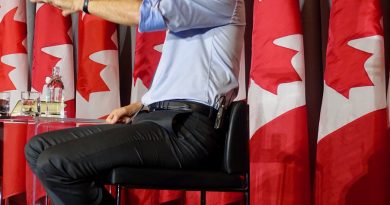Dr. Gabriel Hetland Speaks with Diplomacy Students about Venezuela Crisis
Luisa Chainferber
Staff Writer
On Wednesday, March 6, Diplomacy students had an online talk with Dr. Gabriel Hetland on the ongoing geopolitical crisis in Venezuela. Dr. Gabriel Hetland, professor of Latin America, Caribbean, and Latino Studies at the State University of New York at Albany, discussed several aspects of the current instability in Venezuela. The Seton Hall Latin American Diplomacy Group organized the event with support from the Joseph A. Unanue Latino Institute.
Dr. Hetland started his talk by remarking that there are two competing narratives on the Venezuela crisis. The mainstream view presents Venezuela as a failed dictator state in which all economic mismanagement is due to socialist policies. According to this view, Venezuela is proof that socialism is destined to fail, like any attempt to resist free-market capitalism.
Meanwhile, the alternative narrative presents Venezuela as a nation in a revolutionary struggle on behalf of the country’s oppressed. Dr. Hetland explained that this alternative view emphasizes how Hugo Chávez’s government initially reduced poverty in the country and gave citizens better living standards. This view also argues that the United States is responsible for the current crisis, that it is due solely to an American-led economic war on Venezuela.
Dr. Hetland stated that both these views have some flaws and truths. He emphasized the need for a more complex analysis of the crisis and argued that both the government and the opposition play a role in the current crisis.
It is important to realize that the situation in Venezuela was different five years ago, argued Dr. Hetland. Chávez’s government was able to cut poverty in half during the 2003 to 2008 oil boom.
Then, the situation deteriorated. The government lost control of the economy after widespread resource mismanagement, a failure to diversify away from oil, and other issues (including US aggression). Yet instead of probing for sustainable socioeconomic solutions, the government began to resort to authoritarian actions in an attempt to retain power. After the president’s party lost some election seats in the national assembly, it became clear that authoritarianism was the only way to maintain power.
According to Dr. Hetland, there are multiple factors for the current crisis. Venezuela’s oil dependency left the economy vulnerable to international market fluctuations. Nonetheless, the government had the opportunity to fix its currency policy, which causes major economic problems. This occurred in part by creating a black market in which state and military officials and the Venezuelan private sector had access to U.S. dollars at a lower rate, but created shortage of goods and major internal production problems by trading these dollars on the black market to make a massive profit.
Dr. Hetland also addressed the role of U.S. sanctions in the Venezuela crisis. Minor economic penalties were first imposed during the Obama administration but have since expanded drastically. Dr. Hetland believes that the current oil sanctions imposed by the U.S. will affect thousands of people who will lack access to food and medicine. Ultimately, while the Venezuelan government generated avoidable deaths, it is necessary to acknowledge the negative role of American sanctions in the crisis.
Lastly, Dr. Hetland addressed a possible solution for the crisis. He emphasized the need for large-scale political and economic change and an official acknowledgement of the government’s shared responsibility for the crisis. Dr. Hetland argued that any solution must include a comprehensive political overhaul, incorporate free elections with new electoral authorities, involve valid international observers, and prioritize meaningful economic reform.


